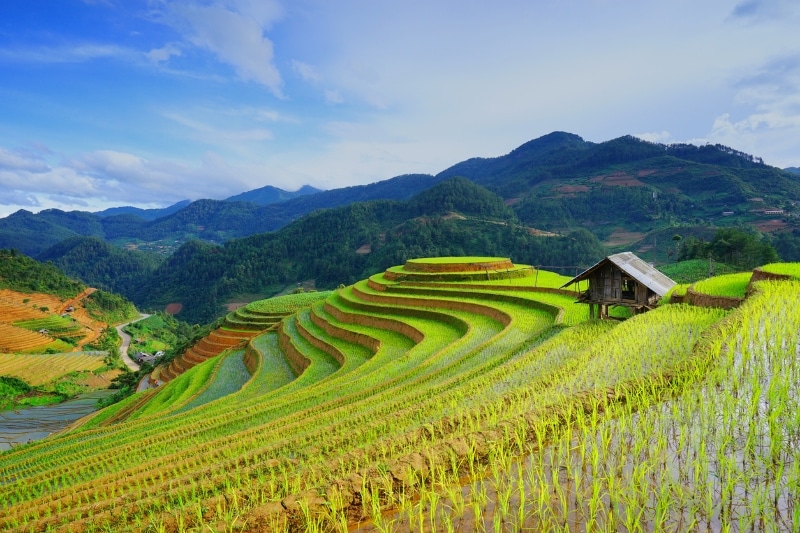Malaysia’s Agriculture and Food Security Minister, Datuk Seri Mohamad Sabu, outlined the ministry’s ambitious plans to revolutionize rice cultivation practices in the country. The goal is to replicate the successful Sekinchan-style SMART Large-Scale Padi Field (SMART SBB) approach across one-third of Malaysia’s total estimated 600,000 hectares allocated for paddy fields.
The ministry targets expanding paddy-planting areas to approximately 150,000 hectares nationwide by 2030, particularly focusing on collaboration with the governments of Sarawak and Sabah to establish these regions as the country’s second rice bowl. Similar initiatives will be implemented with the Muda Agricultural Development Authority (Mada) in Kedah and the Kemubu Agricultural Development Authority (Kada) in Kelantan. By adopting modern agricultural techniques, Malaysia aims to achieve a minimum yield of seven metric tons per hectare, positioning itself as a rice exporter. Currently, Malaysia’s yield falls short at less than five metric tons per hectare.
In a related development, FGV Agri Services Sdn. Bhd. (FGVAS), a global agriculture and agricultural commodities company based in Malaysia and NAFAS Agri Services Sdn. Bhd. (NASSB), a Malaysian supplier of agricultural inputs have partnered with Pandawa Agri Indonesia (PAI), an Indonesian life-science-based agricultural company on pesticide-reductant innovation. This collaboration introduces WEED Solut-ioN®, a product designed to reduce pesticide usage by up to 50%, benefitting over 200,000 rice farmers in Malaysia. This strategic alliance aims to optimize costs and enhance outcomes within the rice smallholder ecosystem through government distribution channels and open markets.
(Sources: Eco Business; The Star)

